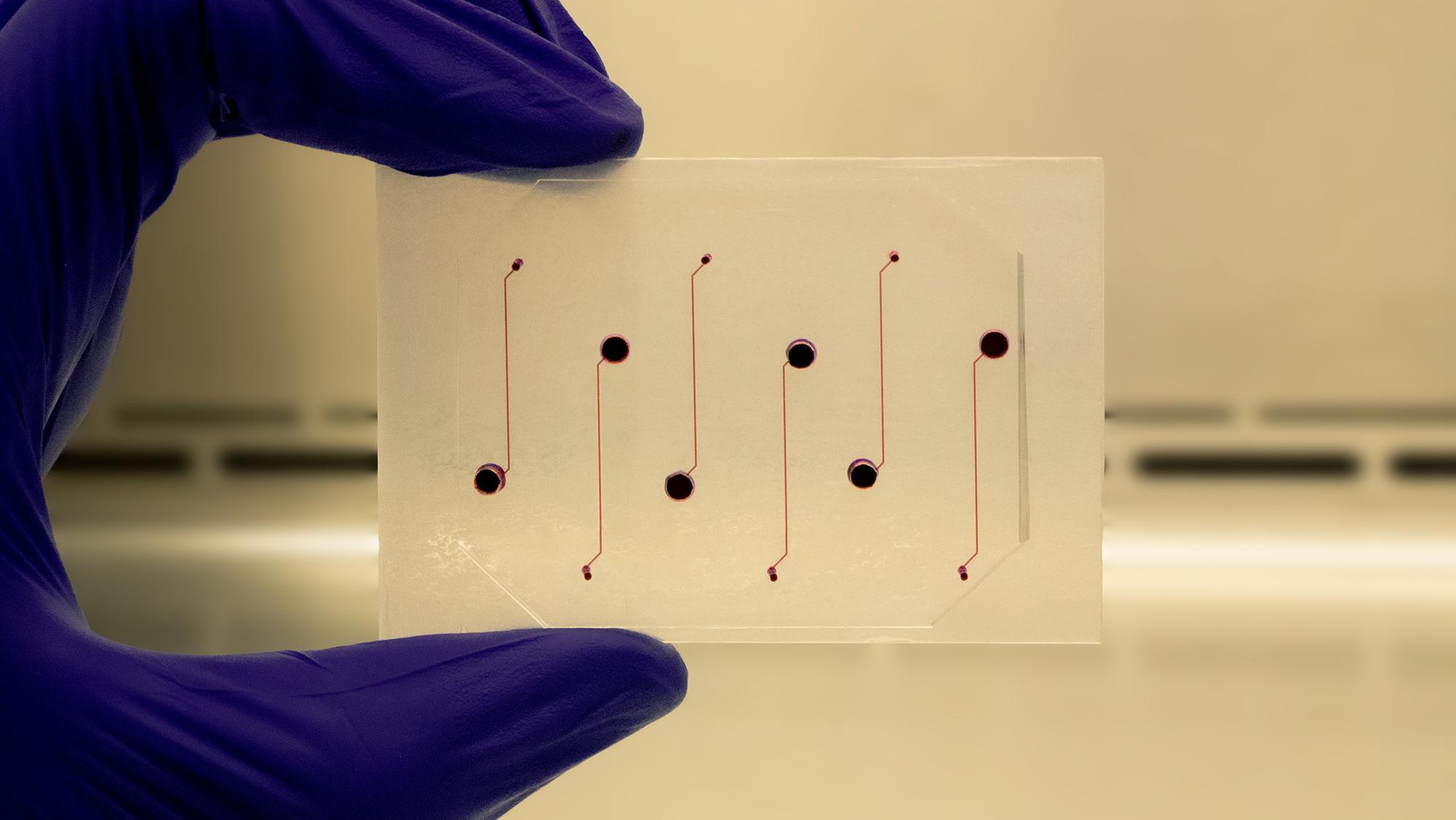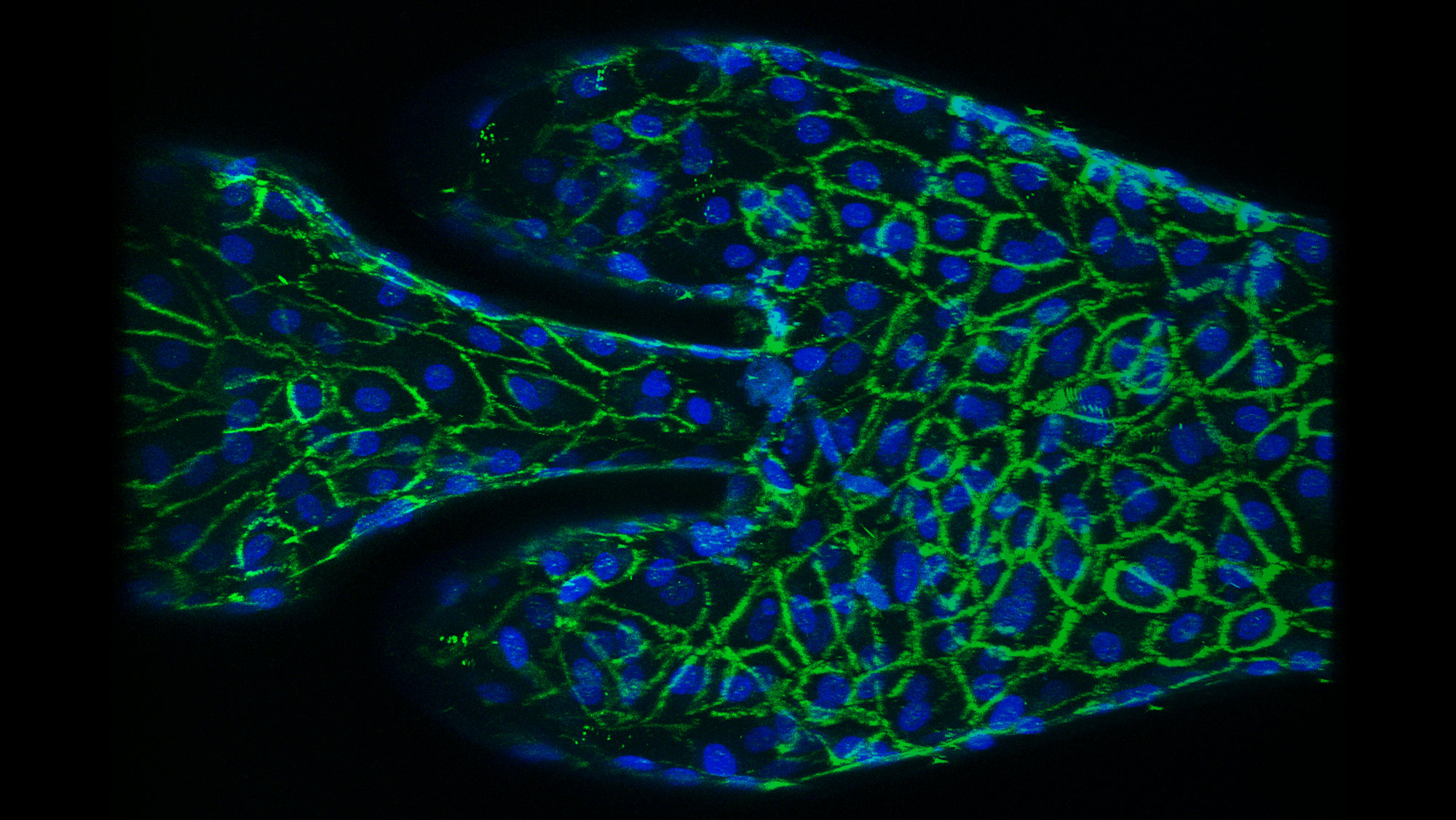
The pharmaceutical drug development and approval process is a multi-step undertaking that requires a plethora of testing before reaching the market. Even then, humans respond differently to drugs depending on their individual bodies and medical needs.
Dr. Abhishek Jain, associate professor in the Department of Biomedical Engineering, and his lab received a grant from Texas A&M Innovation to continue developing an advanced vessel-chip deployment platform for large-scale pharmaceutical testing services that holds promise for personalized and accurate testing.
For the past eight years, Jain and his lab have focused their research efforts on creating blood and lymphatic vessel-chips, which are tissue-engineered microfluidic devices that mimic human circulatory systems and provide a platform for preclinical drug discovery.
Since these systems are built using human cells that may also be derived from individual patients, these chips may lessen the need for animal testing and provide a more physiologically relevant and personalized testing platform before human clinical trials.
This system can be used from discovery all the way to the translational pipeline, where you can immediately initiate informed clinical trials of venous, vascular and hematological diseases and know what the outcome on an actual human might be.
“Testing drugs is the ultimate commercial value from this because you're always interested in solving a disease and curing patients,” Jain said “This system can be used from discovery all the way to the translational pipeline, where you can immediately initiate informed clinical trials of venous, vascular and hematological diseases and know what the outcome on an actual human might be. You can fine-tune your clinical trials or reduce the length of the clinical trials and make them much more efficient.”
Jain’s research was one of three projects from the biomedical engineering department selected to receive a Texas A&M Innovation Translational Investment Fund (TIF) grant. Dr. Feng Zhao was selected for her project creating an engineered vascular graft and John Hanks and joint faculty Amir Tofighi Zavareh were selected for their project developing a human-informed full stack software for arterial disease screening.
The TIF grants provide system researchers with services and support to commercialize products to impact lives through translation — the act of moving scientific discoveries from the lab into the real world.
Jain’s work on these vessel-chips has culminated in the founding of a startup company with his current and past trainees. Jain said the TIF grant will help build confidence in customers by ensuring that the vessel-chips are reliable, reproducible and automated for ease of use.

“This grant allows us to test the hypothesis that this vessel-chip is actually ready for market adoption,” Jain said. “This is also an opportunity that Texas A&M has given us to train the future workforce of this startup. For example, I am dedicating these funds to partially support a graduate student, Jason Eades, and my staff engineer, Julie Armand, who are helping me in launching the company.”
Jain said that the momentum offered by the TIF also allowed him to hire Dr. Tanmay Mathur, a previous graduate student of Jain’s, to help make the startup successful.
“Texas A&M University has a rich legacy of helping faculty translate their ideas into actual startups so that we can realize the vision of helping society,” Jain said. “The ultimate purpose of our university is to make an impact on the lives of the people, and I think this is a very conscious, deterministic step to be able to do so. Without these funds, it would have taken much more time to launch a startup. These funds are elevating the value of this product.”